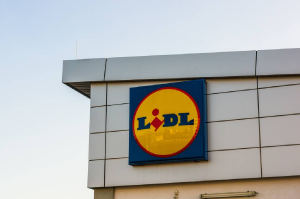
As the festive season approached, Christmas markets in Toruń and Szczecin, Poland, were abuzz with activity. However, a stir was caused by the presence of nuns from Belarus, representing the Monastery of St. Elizabeth in Minsk, at the market stalls. The controversy centered around the purpose of the sales of handmade crafts, food, and clothing, with concerns raised about the potential use of the funds generated.
Allegations of Supporting the Russian Army
According to Belarusian opposition activists and Ukrainian human rights defenders, the revenues from the monastery’s activities may be used to support the Russian army, including the purchase of military equipment, vehicles, and ammunition. The monastery, which falls under the Moscow Patriarchate, is said to promote the ideology of „Russian world,” a concept that has been criticized for its nationalistic and expansionist connotations.
Support for the Army in Donbas
Reports suggest that the nuns have been openly collecting funds for the needs of the army operating in Donbas, a region in eastern Ukraine that has been embroiled in conflict since 2014. The nuns’ presence at the Polish markets was discreet, with no promotion of their activities, and products were offered at high prices. Despite the local character of the monastery, its activities extend far beyond the borders of Belarus, including the use of social media in English.
Reaction from Polish Authorities
Following the controversy, the organizers of the Christmas markets in Toruń and Szczecin decided to ban the monastery from selling its products on their premises. The Polish Ministry of Foreign Affairs has also hinted at the possibility of diplomatic intervention, including summoning the chargé d’affaires of Belarus to explain the situation. While churches and religious associations in Poland enjoy constitutional guarantees of religious freedom, the monastery’s activities have sparked concerns in the context of allegations of supporting the Russian army.
A Delicate Balance between Religious Freedom and National Security
The controversy surrounding the Monastery of St. Elizabeth in Minsk highlights the delicate balance between religious freedom and national security concerns. While religious organizations have the right to operate freely, their activities must not compromise the security and well-being of the host country. In this case, the Polish authorities are faced with the challenge of ensuring that the activities of the monastery do not violate Poland’s laws and international obligations.
The Importance of Transparency and Accountability
The controversy also underscores the importance of transparency and accountability in the activities of religious organizations. In an era of global interconnectedness, it is essential for religious organizations to be open about their sources of funding and the use of their resources. This is especially crucial in cases where religious organizations may have ties to countries with questionable human rights records or those involved in conflicts.
In Conclusion
The controversy surrounding the Monastery of St. Elizabeth in Minsk serves as a reminder of the complexities of navigating religious freedom, national security, and international relations. It is essential for Polish authorities to ensure that the activities of religious organizations do not compromise the country’s security and well-being, while also respecting the constitutional guarantees of religious freedom. By promoting transparency and accountability, we can build a more trustworthy and secure environment for all.
Sources:
* o2.pl
* Polish Ministry of Foreign Affairs
* Human Rights Defender of Ukraine
* Moscow Patriarchate














